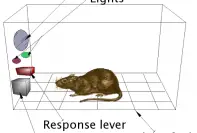Punishment is an important concept used in the theory of Operant conditioning, whose main goal is to decrease the rate of certain undesired behavior from occurring again. There are two kinds of punishment
- Positive Punishment
- Negative Punishment
This article will cover various aspects of Negative punishment.
Negative punishment is the part of punishment, which also focuses on decreasing the rate of any specific undesired behavior from an individual.
The concept works by removing a certain favorite or desired item from the individual’s life. When a certain desired stimulus/item is removed from an individual’s life, the undesired behavior is exhibited, and there is less chance of the behavior occurring again in the future.
The term “negative” sounds pretty redundant, as punishments, by nature are always negative consequences that are the result of any certain action. As positive punishment means addition of a stimulus in the individual’s life, negative punishment means removal of certain favorite item or stimulus from the individual’s life.
Examples
- Consider a scenario where a student receives a phone call in the classroom, and he picks up the call and starts talking in front of the whole class, causing the lecture to abrupt. The teacher then seizes his cell phone, and after knowing about his indiscipline in class, his parents take away his Xbox privileges. This is a serious consequence in the mind of a teenage student, and she is then discouraged to from repeating the action again.
- An employee, who’s been lazing around at work and failing to meet the deadline, gets his salary cut in half, with a condition that he would only get full pay if he showed more dedication and managed to meet deadlines from then on.This severe consequence would definitely encourage the employee to be more attentive at work, to save himself from any future embarrassment.

Here, the careless student and the lazy employee are the individuals at the receiving end of negative punishments. In the case of the student, cell phone and Xbox being seized are the negative punishments, and pay-cut is the negative punishment in case of the lazy employee. As a concept of Operant conditioning, these negative punishments will then go on to stop undesirable behaviors.
Is Negative Punishment Effective?
Negative punishments are highly effective, but there are certain factors that come into play when it comes to determining the success rate of the method in question.
Two major factors are:
- It should be immediately followed by a response.
- It should be applied consistently.
If negative punishment is not immediate or consistent, then the success rate of any particular being seized, as a result of negative punishment, automatically dips.
In the first example, the student might go back to his old ways once she gets back his cell phone and Xbox, but the chances are automatically higher if she has gotten away with her behavior. For the negative punishment to work successfully, the student needs to be punished every time. Similar is the case with the employee who had managed to get away with his laziness until the time he was finally caught.
Punished behaviors often resurface once the consequences are withdrawn, similar to that of positive punishment, which is the major drawback of the concept.
Another reason why negative punishment does not work successfully is because the punishment does not actually offer any valuable information. The concept would work much better if the punishment offered information on what appropriate behaviors are, as it only tells or notifies to stop performing certain actions. By not having learned the right behaviors, individuals are more likely to go back to their always ways.
Even when everything is followed step by step, negative punishment still does not work every time. Take tax frauds for example. White collar criminals are taken away of everything they own (if not jailed), after being caught in tax fraud, but, they still go back to being a thug and continue in their old ways. There are many more examples of how some individuals can never learn.




